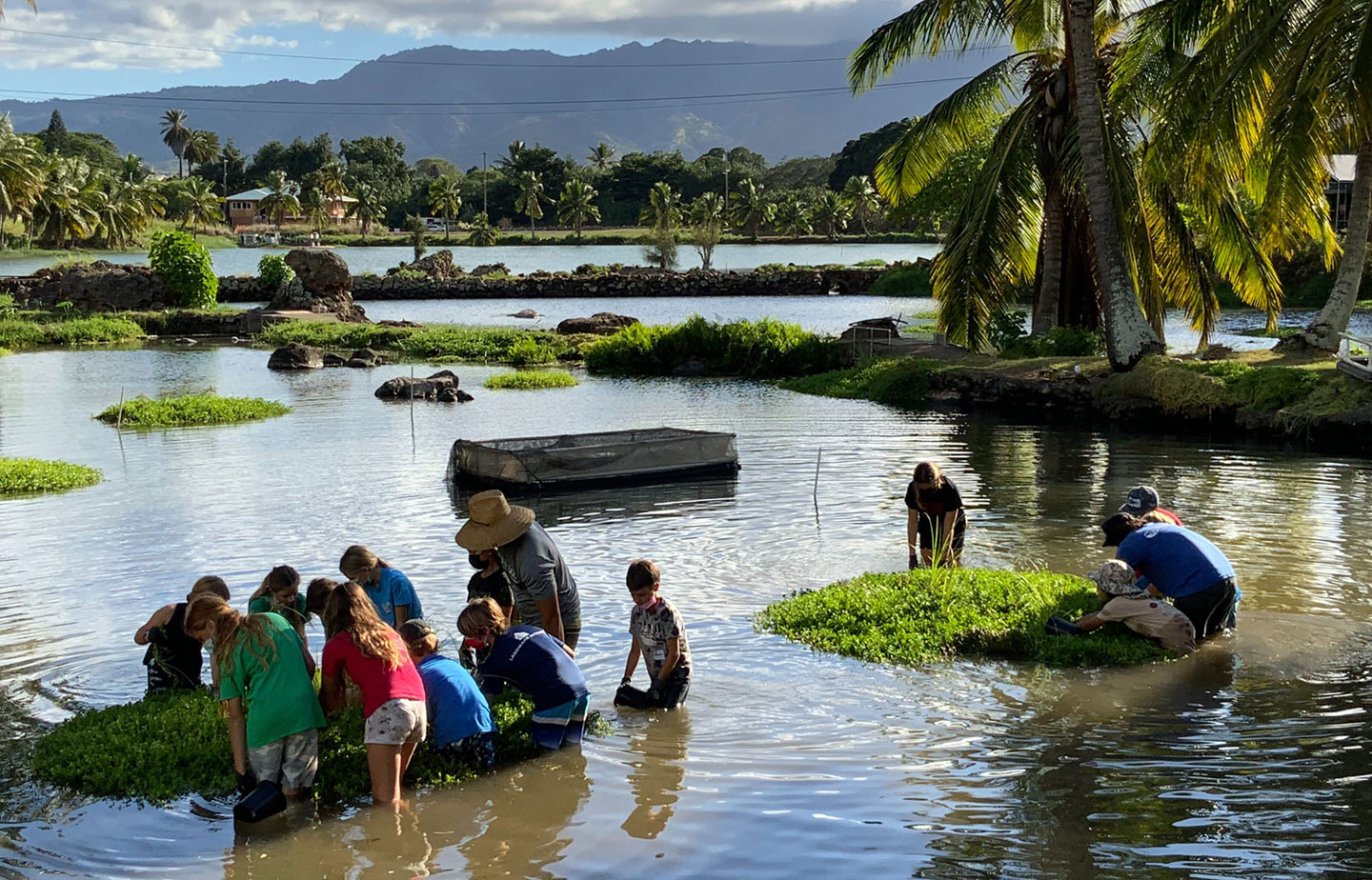
Students at Loko Ea in Hale‘iwa learn about ecology, aquaculture and cultural practices related to managing the historic fishpond. Photo courtesy Mālama Loko Ea Foundation.
On October 18, 2024, the Advisory Council on Historic Preservation (ACHP) approved an “Exemption for Indigenous Knowledge-Informed Activities by Native Hawaiian Organizations” to facilitate federally-assisted NHO led and managed restoration, rehabilitation, preservation, and reconstruction activities that are informed by Indigenous Knowledge and are likely to have minimal or non-adverse effects on historic properties.
ACHP Chair Sara Bronin said that the regulations that implement Section 106 of the National Historic Preservation Act allow the Council to propose a program or category of federal undertakings that may be exempted from review if their potential effects are foreseeable, likely to be minimal or not adverse, and are consistent with the purposes of the National Historic Preservation Act.
Bronin noted that the ACHP’s policy statement on Indigenous Knowledge and Historic Preservation, adopted in March, “encourages us to further elaborate, advance, and encourage Indigenous Knowledge in the Section 106 process.”
ACHP initiated consultation with Native Hawaiian Organizations, State officials, preservation organizations and members of the public in May on the proposal, which was open for public comment through August. ACHP held several consultation meetings with Native Hawaiian Organizations and other stakeholders, including Historic Hawai‘i Foundation.
Comments generally fell into three categories:
- Support for a streamlined method for Section 106 for actions that are for the purpose of preservation and stewardship, where the undertaking itself is for the purpose of stewardship for a cultural resource or historic property. The most relevant examples are financial assistance from an agency to a public or nonprivate partner to implement a preservation project.
- Concern that the exemption would provide a loophole that could be misused by federal agencies with pretextual determinations, which would curtail opportunities for consultation and eliminate the established process for working through issues where more than one NHO has an interest and may have differing approaches to treatment, or where other types of historic properties are present. If mishandled, the Exemption could undermine protections afforded both to Native Hawaiian and other historic sites and disenfranchise stakeholders.
- Technical comments for addressing areas of ambiguity, contradiction or interpretation to ensure that the resulting procedure is clear and can be implemented as intended.
ACHP addressed the comments with additional edits, including provisions that the exemption does not apply to National Historic Landmarks, actions that are contrary to or limiting of Indigenous Knowledge-informed traditional cultural practice of one or more other NHO, demolition, or activities that would adversely affect “character-defining features.” It may not be used if there is a known conflict among different NHOs about the most culturally appropriate measures.
Federal agencies remain responsible for Section 106 compliance with regard to any undertakings not covered by the exemption. For the next eleven years, the federal agencies that use the exemption will be required to report back to and meet with the ACHP to track the exemption’s effectiveness.
After the affirmative vote by the Council, Chair Bronin said, “Native Hawaiians, not the federal government, are the experts when it comes to preserving their cultural sites and practices. This exemption values Native Hawaiian knowledge in maintaining and preserving their cultural places, and it facilitates activities that are by definition historic and cultural preservation. I am confident today’s action will open up additional pathways to incorporate Indigenous Knowledge into the ACHP’s regulatory review process in the years ahead.”
For more information, see https://www.achp.gov/native-hawaiians/exemption

